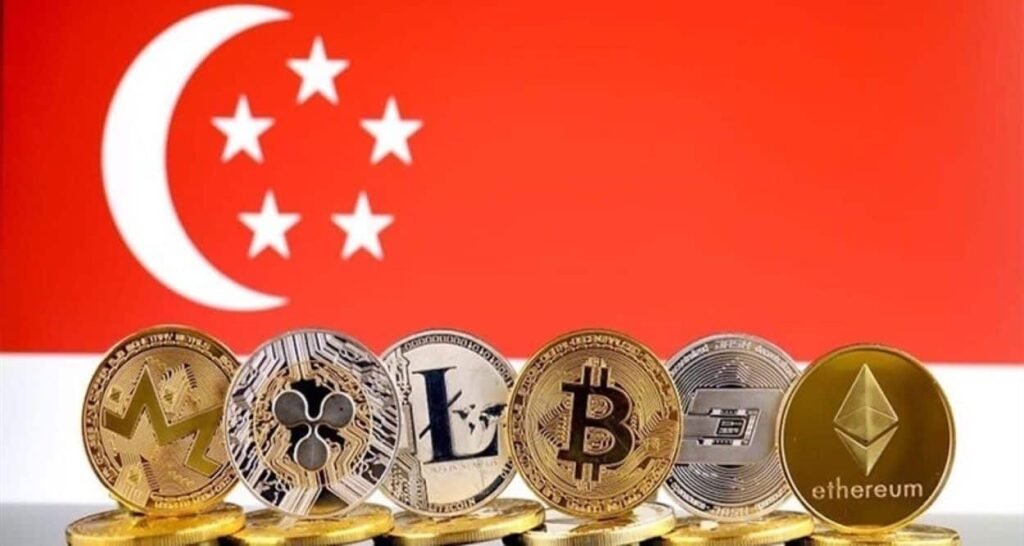The world of cryptocurrency never stays quiet for long. Just as markets find their footing and investors grow comfortable, a fresh wave of regulation or innovation sweeps through, reshaping the financial landscape. This time, it’s Singapore making headlines, and the ripples are already being felt as major players look towards Hong Kong and Dubai for fresh opportunities.
In a surprising yet calculated move, Singapore’s regulatory authorities have tightened their grip on the crypto sector, sending shockwaves through an industry long considered one of the most dynamic and disruptive of the modern financial age. For many entrepreneurs, startups, and investors, the message is clear — it’s time to pack their bags and explore new horizons.
A City Once Seen as Crypto-Friendly
For years, Singapore earned a reputation as one of Asia’s most forward-thinking crypto hubs. Its clean governance, strong legal frameworks, and open economic policies made it an attractive destination for fintech and blockchain innovation. Global companies and digital asset exchanges found solace in the city-state’s business-friendly climate and easy access to regional markets.

However, the crypto world’s rapid growth also attracted its share of risk. From money laundering concerns to the collapse of some high-profile projects, authorities began sounding alarm bells. Regulators started enforcing stricter rules on crypto advertising, banning retail access to certain digital assets, and limiting public promotions.
The latest crackdown is part of a broader attempt to protect investors, ensure financial stability, and maintain Singapore’s global standing as a well-regulated financial center. While the intentions are understandable, the consequences have been immediate and widespread, leaving many crypto firms scrambling for alternatives.


New Frontiers: Dubai and Hong Kong Rise
As Singapore tightens its grip, two cities have swiftly emerged as the next big opportunities for crypto businesses — Dubai and Hong Kong.
In Dubai, the government has been aggressively positioning itself as a future-focused hub for digital assets. From establishing the Virtual Assets Regulatory Authority (VARA) to hosting high-profile blockchain conferences and offering streamlined licensing processes, the emirate has created an environment where innovation feels both encouraged and secure.
Similarly, Hong Kong — despite recent political tensions — is making a comeback in the crypto conversation. Authorities there have signaled a new openness to digital asset markets, with plans to regulate exchanges, offer retail investor protections, and actively support Web3 development. It’s a bold shift that’s already turning heads among international investors and blockchain entrepreneurs.
Why Crypto Firms Are Eyeing Dubai
Dubai’s rise as a crypto destination is no accident. In a region known for its ambitious mega-projects and business-friendly policies, the city has carved out a niche for itself as a leader in emerging technologies.
One of Dubai’s biggest draws is its progressive regulatory stance. Rather than shying away from the complexities of digital finance, the city has embraced them. VARA, established in 2022, offers a clear and transparent framework for crypto businesses, providing guidelines for licensing, anti-money laundering standards, and consumer protections. It’s a far cry from the regulatory uncertainty plaguing other jurisdictions.
Moreover, Dubai’s tax-free status, high quality of life, and strategic location connecting Asia, Europe, and Africa make it an enticing option for entrepreneurs. Add to that its thriving expat community, futuristic infrastructure, and a leadership vision firmly rooted in digital transformation, and it’s easy to see why so many crypto firms are making the move.
Hong Kong’s Bid for Crypto Revival
Hong Kong, meanwhile, is betting on its financial heritage and proximity to mainland China to reclaim its place in the digital economy. After years of ambiguity regarding crypto regulations, authorities are now taking clear steps to rebuild confidence in the market.
The Hong Kong Securities and Futures Commission (SFC) has introduced licensing regimes for crypto exchanges and digital asset trading platforms, aiming to safeguard retail investors while providing room for responsible innovation. High-level government support for Web3 projects and blockchain startups has further fueled optimism.
While geopolitical challenges remain a concern, the potential rewards are undeniable. With access to deep pools of capital, experienced financial talent, and a mature legal system, Hong Kong is positioning itself as a serious contender in the race for crypto supremacy.

Voices From the Industry: What Founders Are Saying
For many in the crypto world, the choice to relocate operations isn’t just about regulations — it’s about survival and opportunity.
Ali Raza, a fintech entrepreneur who recently moved his crypto consultancy from Singapore to Dubai, shared, “It wasn’t an easy decision because Singapore has been good to us. But the new rules made it impossible to operate the way we needed. In Dubai, we found not just freedom but a supportive ecosystem and real government interest in what we do.”
Similarly, an anonymous executive from a major blockchain project expressed excitement about Hong Kong’s fresh approach. “Hong Kong is reawakening. The licensing process is clear, investor interest is growing, and the city’s proximity to China could open new doors.”
These sentiments echo across the industry, as companies reassess their futures and search for cities that align with their visions of growth and innovation.
The Bigger Picture: A Global Shift in Crypto Power
Singapore’s crackdown and the corresponding moves to Dubai and Hong Kong highlight a larger trend in the global digital asset space. As crypto matures from its Wild West origins, jurisdictions are defining their positions, either tightening controls or opening doors to innovation.
What’s happening in Asia is part of a broader narrative where cities and countries are competing for dominance in Web3 and blockchain ecosystems. From El Salvador’s Bitcoin ambitions to Miami’s crypto-friendly policies and the EU’s sweeping MiCA regulations, the digital finance map is being redrawn in real-time.
For crypto businesses and investors, the new reality demands agility. Success will increasingly hinge on navigating shifting regulations, choosing the right operational bases, and building networks in cities where technology and finance intersect.
The Human Side of the Crypto Migration
Behind the corporate headlines and regulatory announcements lies a deeply human story. The founders, developers, and investors making these moves aren’t just chasing profits — they’re chasing dreams.
For young tech entrepreneurs, cities like Dubai represent the promise of possibility. A place where ideas can flourish, where startup capital is accessible, and where cutting-edge technology is part of daily life.
For established crypto firms, the move is about resilience. It’s about safeguarding business continuity in uncertain times while staying ahead of the curve in a sector where yesterday’s success is no guarantee of tomorrow’s survival.
And for individual investors and digital nomads, these moves offer a chance to be part of history. To live and work in cities that are actively shaping the future of finance, culture, and digital communities.

What Comes Next: A New Era for Crypto Hubs
As the dust settles on Singapore’s regulatory crackdown, the winners in this shifting landscape are becoming clearer. Dubai’s bold embrace of crypto, combined with Hong Kong’s renewed commitment to digital assets, signals a new era where regional hubs compete not just for capital, but for influence in the world of digital finance.
While Singapore may retain its place as a financial powerhouse, its role in the crypto revolution appears to be waning, at least for now. In contrast, Dubai and Hong Kong are surging ahead, setting the stage for fresh waves of innovation, investment, and industry-defining deals.
The crypto industry, ever restless and endlessly ambitious, will continue to evolve. New regulations, emerging markets, and shifting investor appetites will shape its next chapters. But one thing is clear — the movement sparked by Singapore’s crackdown is far from over.
The future of crypto is being built right now in the bustling streets of Dubai, the skyscrapers of Hong Kong, and in countless home offices, co-working spaces, and digital forums around the world. And for those bold enough to chase it, the opportunities have never been greater.
Do follow UAE Stories on Instagram













